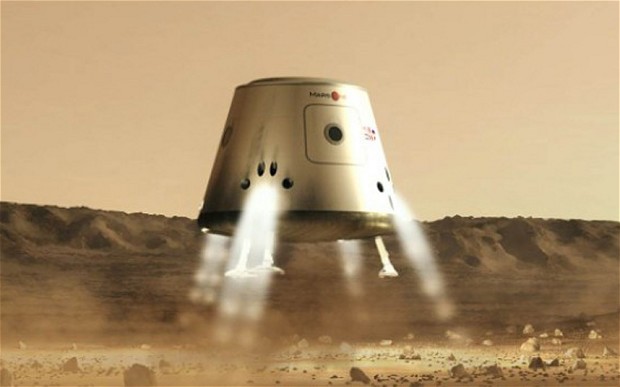Elmo Keep, who made an appearance on Afflictor’s “Great 2014 Nonfiction Articles” list for her ambitious Matter piece about the seeming futility of the MarsOne project and, more broadly, the pursuit of escape in a dying universe, is back with a brief follow-up report. She refers to the Netherlands-based project as “hopelessly, dangerously flawed,” and I don’t think too many close watchers of the enterprise would disagree. The astronatut selection process sounds something like Amway hurtling through the Milky Way. An excerpt:
When Joseph first signed up with Mars One — the media-hyped, one-way mission to colonize the red planet being floated by a Dutch non-profit — he didn’t think much of it. The former NASA researcher said he never really took the application seriously; he was just putting his hat in the ring mostly out of curiosity, and with the hope of bringing public attention to space science.
But eventually Joseph — who is actually Dr. Joseph Roche, an assistant professor at Trinity College’s School of Education in Dublin, with a Ph.D. in physics and astrophysics — found himself on the group’s shortlist of 100 candidates all willing to undertake the theoretical journey. And that’s when he started talking to me about the big problems he was seeing with Mars One.
It was difficult for him to break his silence, but he was spurred into speaking out by the uncritical news coverage. Many basic assumptions about the project remain unchallenged. Most egregiously, many media outlets continue to report that Mars One received applications from 200,000 people who would be happy to die on another planet — when the number it actually received was 2,761.
As Roche observed the process from an insider’s perspective, his concerns increased. Chief among them: that “ and are being encouraged to “donate” any appearance fees back to Mars One — which seemed to him very strange for an outfit that needs billions of dollars to complete its objective.
“When you join the ‘Mars One Community,’ which happens automatically if you applied as a candidate, they start giving you points,” Roche explained to me in an email. “You get points for getting through each round of the selection process (but just an arbitrary number of points, not anything to do with ranking), and then the only way to get more points is to buy merchandise from Mars One or to donate money to them.”•



